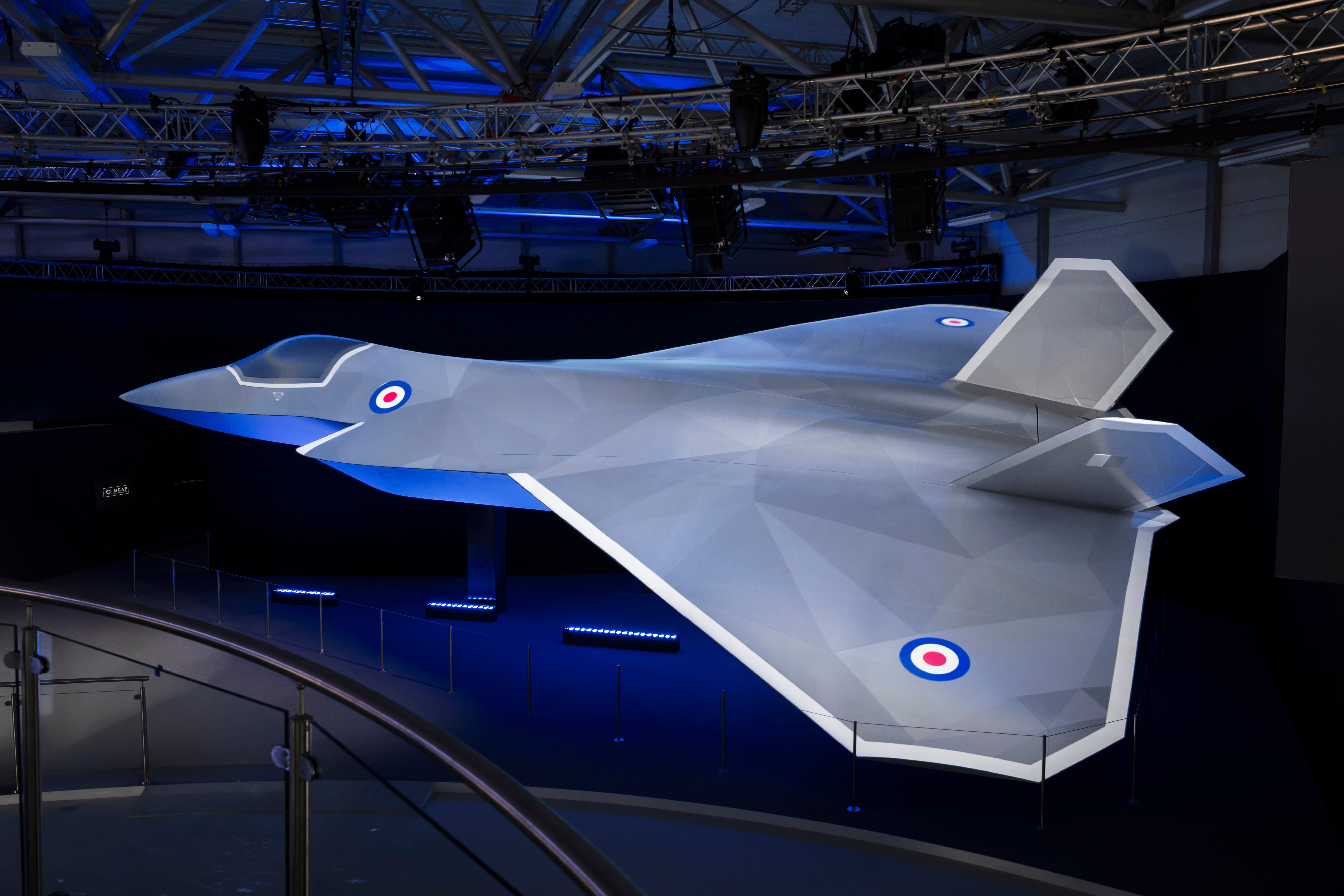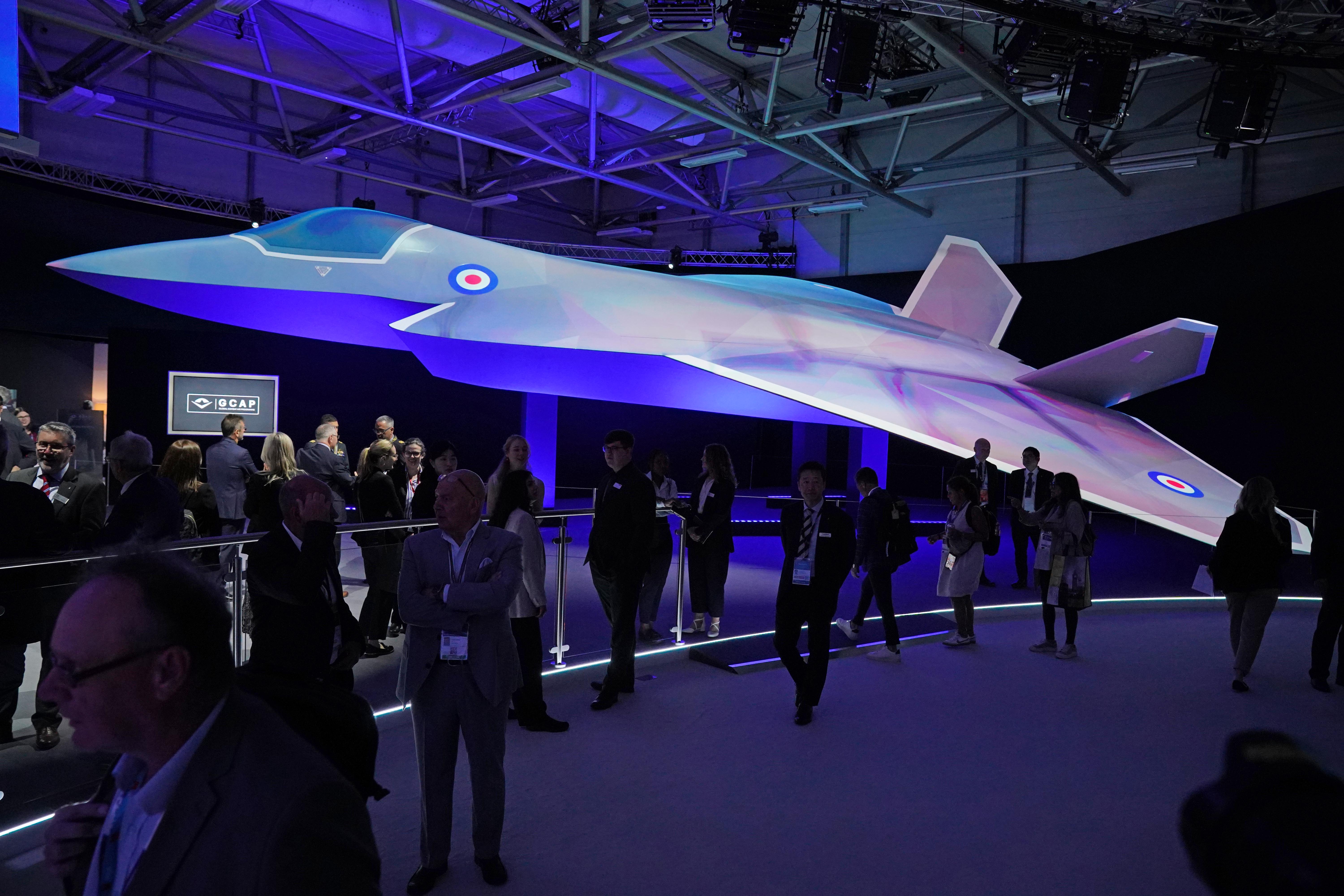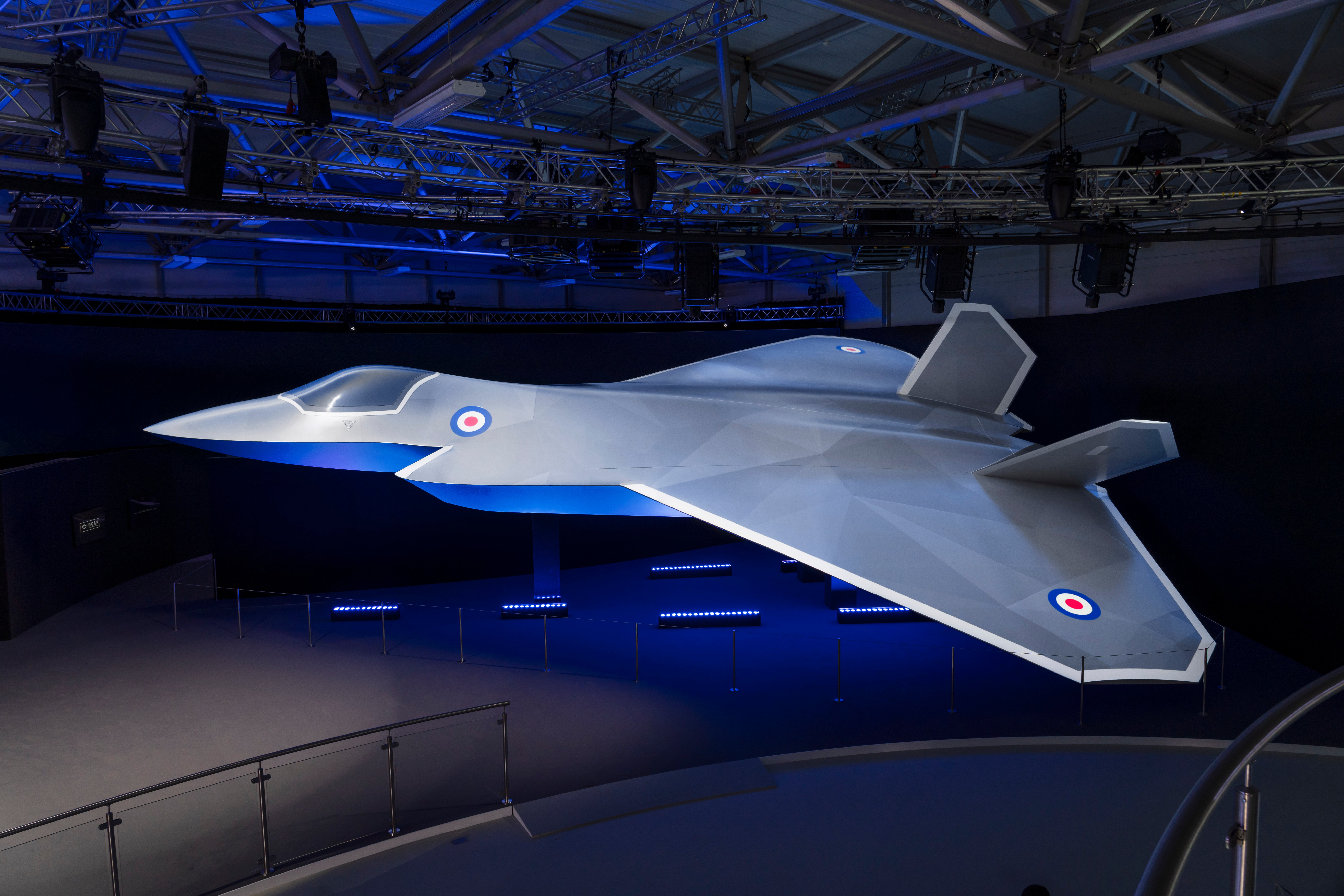Starmer hails progress on next-generation multibillion-pound RAF Tempest fighter jets amid funding worries
The UK’s future flagship jet – known as Tempest – is set to be a sixth-generation stealth aircraft to replace the F-35 warplane

Your support helps us to tell the story
From reproductive rights to climate change to Big Tech, The Independent is on the ground when the story is developing. Whether it's investigating the financials of Elon Musk's pro-Trump PAC or producing our latest documentary, 'The A Word', which shines a light on the American women fighting for reproductive rights, we know how important it is to parse out the facts from the messaging.
At such a critical moment in US history, we need reporters on the ground. Your donation allows us to keep sending journalists to speak to both sides of the story.
The Independent is trusted by Americans across the entire political spectrum. And unlike many other quality news outlets, we choose not to lock Americans out of our reporting and analysis with paywalls. We believe quality journalism should be available to everyone, paid for by those who can afford it.
Your support makes all the difference.Sir Keir Starmer has voiced his commitment to a new multibillion-pound fighter jet under development for the RAF following his visit to Farnborough International Airshow.
The UK’s future flagship jet, known as Tempest, is set to be a sixth-generation stealth aircraft, equipped with advanced weapons and radars, with the ability to fly at supersonic speeds in a step up from the F-35 warplane.
The jet, roughly the size of a tennis court, is being built in partnership with BAE Systems, Italy’s Leonardo and Japan’s Mitsubishi Heavy Industries, and has been described as the “future combat aircraft”.
Speaking at PMQs, Conservative Party leader Rishi Sunak sought assurances that the government would continue talks with Saudi Arabia about its possible involvement in the project.
The Labour leader did not address the question directly, but said: “This is a really important programme, significant progress has already been made and we want to build on that progress, and I’ve had some initial discussions, not least in Farnborough, where I was just a few days ago.”
Mr Sunak highlighted the importance of a prime minister being able to use their prerogative power to ensure the UK military responds quickly to protect national security, adding: “Sometimes without giving this House prior notice.
“Now these are perhaps the most difficult decisions that a prime minister can take and I welcomed his support when I made them. And I want to take this opportunity to assure him of the Opposition’s support if he deems it necessary to take similar action in the future.”

Mr Sunak asked if Sir Keir agreed such power was “essential to ensure the safety and security of the British people”, with the Prime Minister replying: “I agree it’s essential and our security is the first duty of government.”
He said the new government would “endeavour” to brief the opposition where possible on any such action.
Following PMQs, MPs approved legislation that would provide the legal framework for the Global Combat Air Programme (GCAP), amid concerns its immediate funding is in doubt.

Shadow defence secretary James Cartlidge questioned the Labour government’s commitment to the programme, adding that withdrawal from GCAP would be the equivalent of scrapping the Spitfire programme in the 1930s.
The new government is conducting a strategic defence review and Mr Cartlidge raised concerns about the impact it could have on Tempest development.
Mr Cartlidge told the Commons: “Alongside this SI (statutory instrument), we need the government to wholeheartedly back the GCAP programme, ensuring that it has the funding necessary to deliver our sixth generation fighter capability.”
Opening the debate, Foreign Office minister Catherine West said the new aircraft under development would “sit at the heart of a wider system”, including the F-35 and “broader military capabilities”, and would “sustain the UK’s operational advantage”.
The Global Combat Air Programme hopes to get the new jet into service by 2035.
The initial phase of the Tempest project, due to be completed in 2025, has received £2bn of funding from the UK government. Final costs are expected to be significantly more.
The new fighters will be developed in the context of Vladimir Putin’s invasion of Ukraine, as well as the growing power of China and fears of the threat from nations such as Iran.
Join our commenting forum
Join thought-provoking conversations, follow other Independent readers and see their replies
Comments